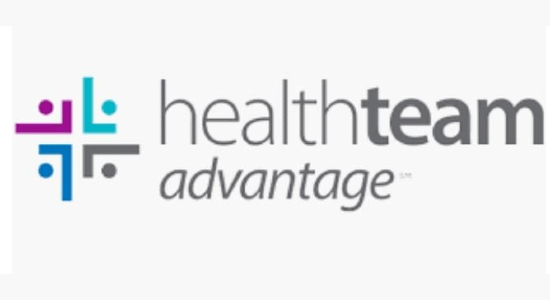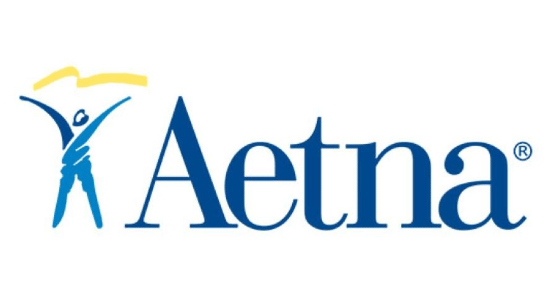FAQ & Resources
Frequently Asked Questions
Learn More About Our Weekend Dentists in Greensboro, NC
A.K. Sharda, DMD PA has set out to make your next dental visit as seamless as possible! We understand the apprehension that often comes with a trip to the dentist, so we're constantly standing by to provide helpful information to patients throughout the Greensboro, High Point, and Oak Ridge, NC areas. Are you interested in exploring our simple financing options? Perhaps you would like to get a better sense of our licenses and affiliations. Whatever the case may be, we urge you to browse each of the following sections. Our general dentist is constantly standing by to provide helpful information regarding your upcoming appointment.
What are your office hours?
Monday, Tuesday, Wednesday, Thursday, and Friday: 8:30 am – 5:00 pm (lunch from 12:30 pm -1:30 pm)
What current guidelines for sterilization and safety do you follow?
We are up to date on all sterilization and disinfection techniques. We follow all recommendations and requirements of federal and state governing bodies, including OSHA, HIPAA, and CDC guidelines, as well as those of the North Carolina Dental Society.
We regularly attend continuing education courses to update our systems and procedures for providing a safe, clean environment for our patients and our dental team. Our equipment is tested regularly per the CDC guidelines for your safety.
What if I've always been afraid of the dentist?
Dr. Sharda has 31 years of experience meeting patients’ dental needs compassionately and knowledgeably using the best, most effective dental technologies available. You’ll find that our practice is very different from the dental offices of your childhood. Dr. Sharda and our entire staff are exceptionally well educated, maintain high standards of continuous learning, and do the utmost to keep patients reassured, informed, comfortable, and as pain-free as possible.
In our Greensboro office, every exam room is equipped with a flat-screen television. Patients are offered the remote to find the programming of their choice to relax during dental exams and procedures.
Do I have to have X-Rays?
If we don’t do X-rays, we can’t see what is under your gums. For Dr. Sharda to get a complete assessment of the health of your teeth, it is essential that we obtain dental X-rays on a regular basis. We recommend having X-rays at least one time a year, and most insurance plans will cover the expense.
Resources:
AADA: The Alliance of the American Dental Association
Floss.com
Dental Health Questions
How often should I brush and floss my teeth?
We strongly recommend brushing your teeth at least twice a day – especially before going to bed at night – with an ADA-approved soft bristle brush and toothpaste. Brush inner, outer and biting surfaces of your teeth, as well as your gums and tongue. Electric toothbrushes of various types can be very useful, because they’re easy to use and can remove plaque very efficiently. Daily flossing is the best way to clean between your teeth and under your gum line.
Flossing not only cleans these spaces, but it also prevents plaque colonies from building up and causing damage to gums, teeth, and bone. Be sure to curve the floss into a “c” shape around each tooth and under the gum line for best results, gently moving the floss up and down to clean the side surfaces of each tooth. If you have difficulty using conventional floss, we recommend using floss holders.
And don’t forget to rinse! After brushing and after meals if you’re unable to brush, rinse your mouth with water and spit the water out. Over-the-counter rinsing products can be helpful for some people; just check with your hygienist about what’s most appropriate for you.
How frequently should I see my dentist?
You should have your teeth cleaned and checked by a dentist at least twice each year. If you have special concerns or conditions, we may recommend more frequent visits. Regular dental exams and professional cleaning are essential to preventing dental problems and maintaining the health of your teeth and gums.
We are committed to providing you with the best possible care, and to do so will require regular, detailed check-ups and comprehensive dental cleanings. We offer general dentist services in Greensboro including preventative care, cleanings, and more.
Could I have gingivitis or periodontal disease?
Four out of five people have periodontal disease and don’t know it, because the disease is usually painless in its early stages. Periodontal disease begins when plaque – a sticky, colorless film of bacteria, food debris, and saliva – is left on the teeth and gums. The bacteria produce acidic toxins that inflame the gums and slowly destroy the bone.
Common signs and symptoms of periodontal disease are: red, puffy, and/or bleeding gums; persistent bad breath; new spacing between teeth or loose teeth; pus around the teeth and gums; receding gums; and tenderness and/or discomfort.
Good oral hygiene, a balanced diet, and regular dental visits can help reduce your risk of developing gum disease. Talk to your dentist or hygienist about any concerns you may have about your own risk factors or dental health.
What can I do about my stained teeth?
Teeth whiteness is a common aesthetic concern, and there are many products and methods available for achieving a brighter smile. Over-the-counter products are commonly available, but they are much less effective than professional treatments and may not be approved by the American Dental Association (ADA). The two most widely used professional systems are home teeth whitening and in-office teeth whitening. We offer teeth whitening services at our Greensboro office.
What don’t I know about tooth whitening? Is there any danger to the process?
Professional tooth whitening is a simple, non-invasive dental treatment that is an ideal way to enhance your smile. However, there are a few things you should be aware of before getting started:
It’s important that you have your teeth evaluated by a dentist to determine if you’re a good candidate for bleaching.
Some stains, old fillings and crowns and other conditions may require other cosmetic treatment options.
Tooth whitening is not permanent; a touch-up may be needed every several years to keep your smile looking bright.
Some patients experience tooth sensitivity after having their teeth whitened. The sensation is temporary and subsides within a few days to a week.
Should I have my silver (amalgam) fillings removed and replaced?
Dentists have used an amalgam – a blend of copper, silver, tin and zinc, bound together by elemental mercury – to fill teeth for more than 100 years. In recent years, there has been concern about the safety of these fillings, owing to claims that exposure to mercury vapor and particles can cause health problems.
Per the American Dental Association (ADA), silver fillings are safe; studies have failed to find any link between silver containing mercury and any medical disorder. The Centers for Disease Control (CDC), World Health Organization (WHO), Food and Drug Administration (FDA) and others agree that silver fillings are safe, durable, and cost-effective.
However, if the issue still concerns you for any reason, we can certainly discuss options with you, as there are many alternatives to silver fillings, including tooth-colored porcelain and gold fillings.
What's the difference between restorative dentistry and cosmetic dentistry?
Restorative dentistry is mainly fixing the structural problems in your teeth. So if for example, you have missing teeth or your tooth is damaged, you would need restorative dentistry. This ensures that an individual has fully functioning teeth.
Cosmetic dentistry goes a step beyond restorative and ensures that the individual has a perfect, stunning smile. This type of work can include but is not limited to veneers, teeth whitening and bridgework.
Billing and Payment Information
- Any co-payments and deductibles are due at the time of service. If you are covered by
dental insurance, we will bill your insurance carrier for all work we perform that is covered under your plan. Once your carrier has paid its portion of your bill, we will mail a statement to you clearly describing what charges – if any beyond copayments – you are responsible for.
We Accept the Following Payment Methods
All major credit cards • personal checks • cash
*Payments are expected at the time of service.
*Care Credit
- For your convenience, we also participate in Dental Fee Plan by Care Credit, which may be a suitable option for unforeseen dental expenses or if you don’t have dental insurance. We offer
financing through Care Credit for those who qualify.
- In addition, we have other in-house financing options that we will be happy to discuss with you. We want to meet your dental health needs in the most cost-effective way possible. We can also provide statements based on your treatment plan. Good dental health should be within reach for everyone.
- It is our mission and obligation to provide you the best dentistry. Dr. Sharda will base your treatment plan on your needs only after he performs a careful clinical exam. We do not allow dental insurance carriers to dictate your treatment by telling us what they believe is the best care for you.








